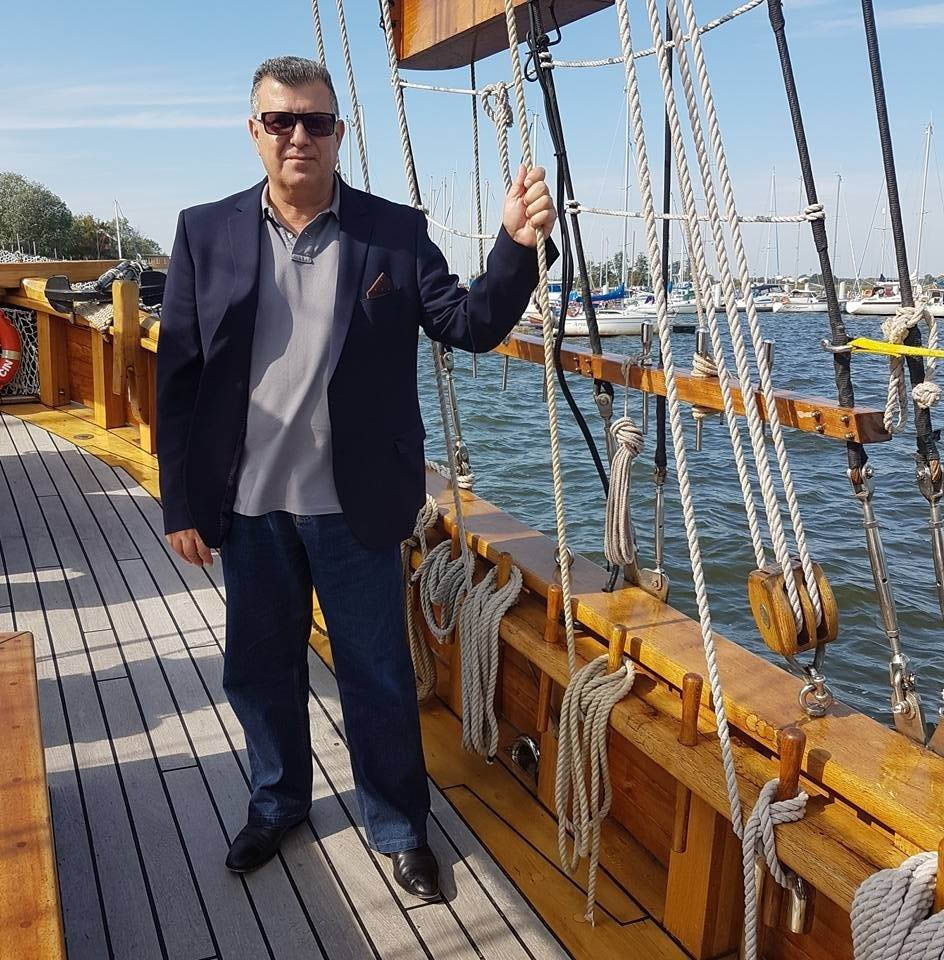in-cyprus 24 August 2020 - by Annie Charalambous
The true owner of Rhosus vessel which shipped over to Beirut port the devastating explosives cargo that rocked the city on August 4 was Charalambos Manoli – a Cypriot shipping magnate, according to an investigative report published by OCCRP and Partners last Friday.
The article by the Organised Crime and Corruption Reporting Project is headlined ‘A Hidden Tycoon, African Explosives, and a Loan from a Notorious Bank: Questionable Connections Surround Beirut Explosion Shipment’ (https://www.occrp.org/en/investigations/a-hidden-tycoon-african-explosives-and-a-loan-from-a-notorious-bank-questionable-connections-surround-beirut-explosion-shipment).
It was published hours only before an Al Jazeera damning report on Cyprus’ ‘golden passports’ scheme and this raises questions whether it was a coincidence.
The OCCRP report says Famagusta-born Manoli (photo) owned the ship through a company registered in the notoriously secretive jurisdiction of Panama, which received its mail in Bulgaria.
And that Cyprus-based Igor Grechushkin, the Russian man variously described as the owner or the operator of the Moldovan-flagged MV Rhosus, is said to have been only the middleman. He has been questioned by Cyprus police at the request of Lebanese authorities.
The report also says that Manoli had registered Rhosus in Moldova, a land-locked Eastern European country that is notorious as a jurisdiction with lax regulations for vessels that fly its “flag of convenience.”
To do this, he worked through another of his companies, Geoship, one of a handful of officially recognized firms that set foreign owners up with Moldovan flags. Then, yet another Manoli company, this one based in Georgia, certified the ship as seaworthy — even though it was in such bad shape it was impounded in Spain days later.
At the time of the Rhosus’ last voyage, Manoli was in debt to FBME, a Lebanese-owned bank that lost multiple licenses for alleged money laundering offenses, including helping the Shia militant group Hezbollah and a company linked to Syria’s weapons of mass destruction program. At one stage, the Rhosus was offered up as collateral to the bank.
The ultimate customer for the ammonium nitrate on the ship, a Mozambican explosives factory, is part of a network of companies previously investigated for weapons trafficking and allegedly supplying explosives used by terrorists. The factory never tried to claim the abandoned material.
The intermediary for the shipment, a British company that was dormant at the time, convinced a Lebanese judge in 2015 to get the ammonium nitrate tested for quality with the intent of claiming it.
The stockpile was found to be in poor condition, and the company, Savaro Limited, did not try to take back the ammonium nitrate in the end.
The new revelations show how, at almost every stage, the Rhosus’ deadly shipment was connected to actors who used opaque offshore structures and lax government oversight to work in the shadows.
The revelations also expose the particular dangers posed by the lack of transparency in the maritime shipping industry, the report also said.
But who is Charalambos Manoli?
He was born in 1960 in Famagusta, a coastal city in what is now the Turkish-controlled part of Cyprus. After studying shipbuilding in Scotland, he returned to Cyprus to work as a ship inspector, and went on to found multiple shipping companies.
Manoli is best known in Cyprus for his role in local football. From 2014 to 2017, he headed Anorthosis Famagusta FC, one of the country’s most popular teams. In 2015, he unsuccessfully ran for the leadership of the Cyprus Football Association.
In 2002, Manoli established Acheon Akti Navigations Limited, a Limassol-based ship management company. In 2007, he established another firm, Interfleet Shipmanagement Limited.







0 Comments:
Yorum Gönder